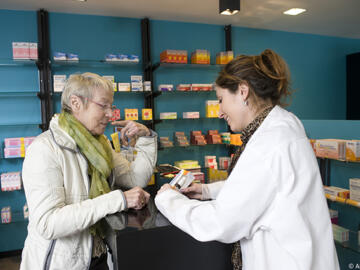Collaborative ecosystem efforts are revolutionizing citizen services beyond traditional boundaries. In the pursuit of innovation and improved municipal services, the forward-thinking municipality of Aalter embarked on a groundbreaking Smart City exploration. Among their previous successful collaborations, TomorrowLab and Aalter co-created smart city furniture, exemplifying their commitment to progress.
As part of the Gemeente zonder Gemeentehuis' project call, Aalter embraced the challenge of offering seamless services to citizens beyond the confines of traditional operating hours. The objective was to provide an independent and accessible service that catered to citizens' needs irrespective of time and location.
Enhancing Citizen Services
TomorrowLab analysed the access flow and - in doing so - discovered that there are many parallels between different citizen services, such as ordering access tickets, applying for identity cards, and obtaining official documents. The result was a comprehensive customer journey mapping that revealed an opportunity to break free from traditional opening hours for several tasks within the town hall. Collaborating closely with the municipality, they strategically decided to streamline document delivery by automating the process. Tasks that were repetitive and added little value to the citizens' experience were moved away from the counters.

Exploring digital frontiers
TomorrowLab then carried out an in-depth analysis of the municipal services that are not yet offered digitally, unveiling numerous possibilities for improvement.
One of the most intriguing uncharted territories was delivering personal documents through contactless means. While various solutions existed for parcel and letter deliveries, the authentication process for identity documents remained tied to physical verification by officials. However, TomorrowLab's involvement in the smart city distribution project allowed them to explore new digital authentication options now available for government applications online.
Thanks to the network of TomorrowLab and Living Tomorrow, we quickly found several partners, who could collectively offer a groundbreaking solution. Introducing the distriSPOT Gemeentehuis Aalter, a pilot project empowering citizens to collect their documents 24/7 after an online request, regardless of opening hours. The integration of itsme-authentication in the user interface of the Telloport-locker ensures secure identity verification, unlocking access to the requested document.
To ensure a well-rounded approach, TomorrowLab engaged with Aalter and other municipalities in their ecosystem to explore further possibilities. This revealed that this takeaway machine could also be used for the delivery of party material or printed matter, for example. Today, as the trial continues, the set-up has a limited number of compartments; this will be expanded in time.
While the test setup finds place, we are looking at the user flow in more detail to identify other opportunities. This initiative aims to introduce various municipalities to the realm of 24/7 document delivery, showcasing the potential of digital authentication in revolutionizing traditional practices.
Thanks to TomorrowLab's visionary efforts and collaborative ecosystem, the distriSPOT Gemeentehuis Aalter represents a leap forward in citizen-centric services, shaping the future of municipal innovation. By embracing digitalization and pushing the boundaries of traditional service models, Aalter sets an inspiring example for municipalities across the globe.

Arcadiz’ vision for 2030: how will businesses communicate in the future?
In an era marked by the evolution of the telecom landscape, Arcadiz, a prominent provider of data driven connectivity solutions in the Benelux, faced a crucial question: How will businesses exchange information in the future?

Q8's navigation through industry changes
Q8, a big player in the energy sector, is driving the transition from traditional hydrocarbons to sustainable energy solutions. Amidst stringent CO2 regulations and a heightened call for ecological stewardship, Q8 faces a pivotal challenge. Hence, achieving a delicate equilibrium between this transition and enhancing its workforce's proficiency in strategy, innovation, and digitalisation becomes imperative.

The pharmacist of the future: a new role and an efficient governance model
The healthcare landscape is undergoing a transformative shift, accelerated by technological advancements. In this respect, the Belgian public pharmacy sector is no exception. How can the officina pharmacist best prepare for 2030? And how can professional pharmacist associations within this complex ecosystem organise themselves to efficiently support the pharmacists of the future?


